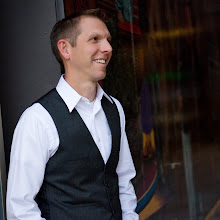"If a guy can handle the Greek and Hebrew, knows at least at the cursory level Christian history and can wrestle through and find answers for deep, difficult theological questions then he might not need a degree from a seminary. These men are usually driven, avid studiers and readers by nature. If they could, they would spend their whole day with the scriptures as well as with men like Calvin, Luther and Spurgeon. I said might because seminary then becomes an obedience issue between him and the Lord and may still be a very good idea.
On the other hand, if you don’t have the tools, have a tendency to be lazy in study, can’t handle the languages, know nothing of how to find answers to deep, difficult theological questions except to quote John Piper and know nothing of our rich history then you need to go get some tools." - Matt Chandler
Now, for me, the Piper thing was harsh but it's increasingly clear to me that a major aspect of my role as a pastor/elder is to defend the truth. It is hard to say that education is a biblical prerequisite for eldership (1 Tim 3:1-7), but is continuing education necessary? Why? How? I'd love to see some comments.









This comment has been removed by the author.
ReplyDeleteI think that continuing education is important for anyone including pastors. This can be informal or formal. Anytime you can sharpen the saw its a good thing. Sometimes siting in a class is a good thing and sometimes doing a book study is what is needed. But I think those are general examples that would apply to any profession.
ReplyDeleteAs for the video I know the first lesson that he was teaching was kind of corny but at least it was to the point. The second sample I walked away not knowing what he was talking about. Maybe "Debt is stupid, and here's why.." would be a better tactic.
A few years ago, I started down the road of learning Greek, but I never completed the course I was going through. I had been recently mulling over getting back to that, and seeing this post really sparked me to pursue this again.
ReplyDeleteThat said, while I understand where Matt Chandler is coming from, I think of the bi-vocational pastors I know and I can see how things like studying Greek (in depth at least) may be a 'luxury' that they can't afford. While that skill would be valuable, these men can very much be effective as pastors without it.
As someone who is full-time, I can see how devoting 30 to 60 minutes a day to something like this, as continuing education, would be possible and valuable.
Of course, I differentiate this more formal education from the building up and encouragement we all need as believers just from regular time in the Word and in other books (which you touched on recently when you commented on being a better steward of your time).
Being a teacher, I know that there is great value in continuing one's education. Teachers are required to continually take classes in order to get recertified. However, how education is continued is important. I've taken many silly classes that did nothing to advance my knowledge of teaching. But in the end they were probably worthwhile too, because they taught me what not to do.
ReplyDeleteAs followers of Christ (pastors or not), we need to continually grow and learn for our own journey and to obey the Great Commission. The more we know our Lord and Savior and the more we are in fellowship with Him, the better He can use us.
And we also need constant reminding of God, who He is and who we are to Him. If elephants never forget, we are the furthest thing from them. I am constantly amazed and appalled at how easily I forget the Lord's miracles in my life and how callously I treat the one who made me and saved me. Continuing my education can help remind me of who God is.
Still, it is of most importance to have a vibrant, passionate relationship with God. If one learns Greek simply to interpret the Bible better, without this higher purpose in mind, that person misses the purpose also of continuing education (and for a pastor, this is exponential, since he is leading so many others by example).